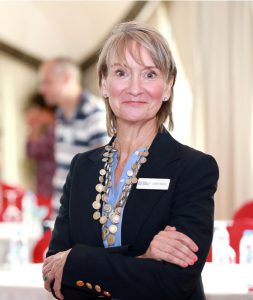Making Goals Stick – Learning from Outside My Boundary

If you are reading this as a BSC Alumni then I imagine you will have heard what I am about to say from one of my Faculty colleagues.
Coaching is coaching, it is discipline, where we coach, the context in which we operate is used to narrow your offer to the market place. For example, if you were to say “I am a General Coach” compared to saying “I am an Executive Coach” this may have an impact on the perception of the buyer.
The same thing happened to me a couple of weeks ago when I accompanied a relative to a hospital appointment, the surgeons name badge said “General Surgeon” whilst his experience and track record was in a specific type of breast surgery as a consequence of breast cancer. When he explained the procedure and I enquired further about his track record my confidence grew. Towards the end of the conversation I asked about his badge that said “General Surgeon”, his response was “oh this badge is an odd one, I have 14 years specialising”.
This made me think, do we:
- Say what we do? I recognise some prefixes, e.g. Wellbeing Coach, indicate a body of knowledge about and indeed BSC would advise anyone wishing to move into this field to gain the necessary knowledge and CPD. Wellbeing coaches, as with any coaching type, should only operate within their boundary of competence.
- Learn from others outside our boundary? What can be very useful for coaches is to observe coaches who operate with a specialism outside of your boundary of competence, e.g. career or sport. Some insight to this area of competence can be achieved through:
- Networking
- Group supervision
- Being coached
- Technical discussion to learn specific tools that you may wish to adapt for your practice
- Mentorship
An example of this is exercise. According to Dr Jordan Metzl, a doctor of sports medicine, writing in the New York Times 29th December 2017, “Last year (2016) the most common New Years Resolution was fitness related. Statistic Brain Research Institute publications a study which identified 50 million Americans committed to increase activity and lose weight in 2017.
Dr Metzl shares the results after the first two months with only 37% of people in their 20s and 16% over 50 had stuck to their fitness habit.
“Behaviour change is tough, even when the benefits of such change are clear”.
I would imagine we all know exercise is an important part in personal health, lessening the risk of heart attacks, stroke, diabetes and contributing to positive mental health, so what stops us? This could be likened to coaching clients in businesses, who know they need to tackle a particular issue but struggle to commit to action.
As I explored more of Dr Metzl’s work I was interested to hear how he moved his patients (excuse the pun) from zero to compliance or as he described it “the holy grail of exercise is compliance”. I conired what I can learn from this to help me working with my clients, all of which have a wide variety of goals.
What I did like was the “commit to something you love”. Whilst I don’t necessarily see my executive client taking about a business goal that they love, I do invite them to consider goals they are passionate about.
In the New York Times piece, Dr Metzl suggests, in his words, “four proven strategies to increase the odds that your resolution will stick in 2018”. I wonder if I can adopt the 4 strategies to help my coaching clients.
- Make it social – Share your goal if possible, learn from others, network, find a mentor.
- Make it fun – Try something new, choose a physical space that energises you, change your usual space to improve thinking, bring creativity into the session.
- Consider an Incentive – Invite your client to think of their own incentive for achieving their goal. Just make sure their reward is realistic.
- Commit to a target date – I place a great deal of importance on a date specific goal, even adding time of completion if appropriate.
Dr Metzl reminds us that whatever you sign up to you need commitment.
Commit to being your best self in 2018.







